7 Asian Film Directors You Shuld Know || 7 Directores de cine asiáticos que deberías conocer
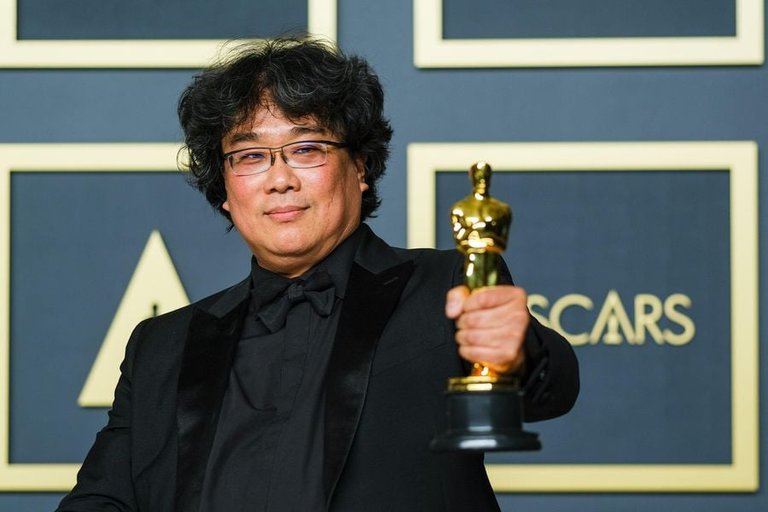
Like most movie-loving members of this community, I usually share reviews of the movies I see, especially those that seem to me to have some outstanding or positive aspect. I have said other times that I like much more the cinema that is beyond Hollywood, in Eastern European countries, Asian, African, Latin American countries, the origin doesn't matter, I feel that I connect better with those stories far from blockbusters and Netflix. So today I wanted to do something different and talk a little about the cinema of one of those distant regions.
Igual que la mayoría de los miembros cinéfilos de esta comunidad suelo compartir reseñas de las películas que veo, sobre todo aquellas que me parecen tener algún aspecto destacado o positivo. He dicho otras veces que me gusta mucho más el cine que está más allá de Hollywood, en países de Europa del este, países asiáticos, africanos, latinoamericanos, no importa la procedencia, siento que conecto mejor con esas historias alejadas de los blockbusters y de Netflix. Así que hoy quise hacer algo distinto y hablar un poco del cine de una de esas regiones lejanas.
When talking about oriental cinema, most people think of two countries: Japan and South Korea. Many very good directors come from both places, but today I want to highlight the work of three of them, two from the country of the rising sun and one from the cradle of k-dramas. Talking about cinema in Japan means going back to names like Akira Kurosawa and Yasujiro Ozu, but since the idea is to focus on names that serve more as an introduction to the wonderful universe of Japanese cinema, the first name that comes to mind is that of one of the creators of Ghibli Studios, Hayao Miyazaki. Animator, illustrator, producer and of course film director Miyazaki is perhaps the most transcendental name in Japanese anime. After five decades of career and with the background of having founded Studio Ghibli with Isao Takahata, Miyazaki is the father of films such as Castle in the Sky, Princess Mononoke and other stories full of adventure, fantasy, growth and emotion among the which I recommend - for those who do not know this director - the already iconic My Neighbor Totoro and Spirited Away. Miyazaki's name has no comparison in Japanese anime and even Makoto Shinkai himself, another tough in the genre, has felt honored when he has been compared to the father of Totoro and so many other memorable animated characters from his films.
Cuando se habla de cine oriental la mayoría de las personas piensa en dos países: Japón y Corea del Sur. De ambos lugares proceden muchos directores muy buenos, pero hoy quiero destacar el trabajo de tres de ellos, dos del país del sol naciente y uno de la cuna de los k-dramas. Hablar de cine en Japón es remontarse a nombres como Akira Kurosawa y Yasujiro Ozu, pero como la idea es centrarme en nombres que sirvan más como introducción al maravilloso universo del cine japonés, el primer nombre que se me ocurre es el de uno de los padres de los estudios Ghibli, Hayao Miyazaki. Animador, ilustrador, productor y por supuesto director de cine Miyazaki es tal vez el nombre más trascendental del anime japonés. Tras cinco décadas de carrera y con el antecedente de haber fundado Studio Ghibli junto a Isao Takahata, Miyazaki es el padre de películas como El castillo en el cielo, La princesa Mononoke y otras historias cargadas de aventuras, fantasía, crecimiento y emoción de entre las cuales recomiendo - para quienes no conocen a este director - las ya icónicas Mi vecino Totoro y El viaje de Chihiro. El nombre de Miyazaki no tiene comparación en el anime japnés y hasta el mismo Makoto Shinkai, otro duro en el género, se ha sentido honrado cuando ha sido comparado con el padre de Totoro y tantos otros personajes animados memorables de sus películas.
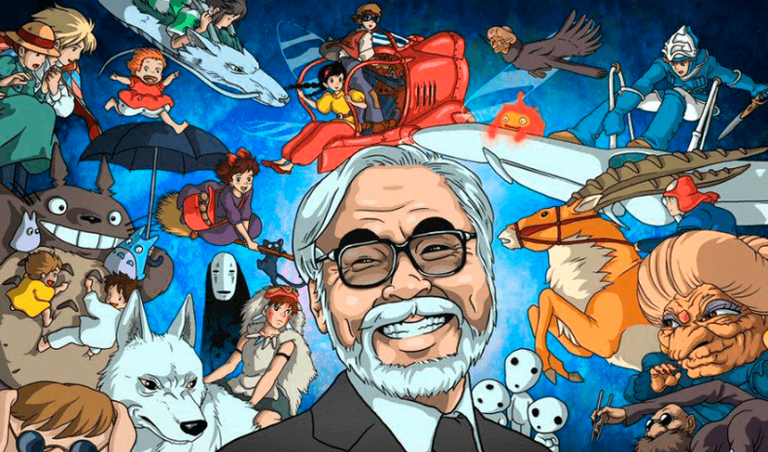
But if you don't like anime, then I have another name for you: Hirokazu Koreeda. His style is more dramatic, his stories focus on families, marginalized characters, abandoned children, personal situations that are difficult to face; He's also directed some thrillers, but I think he does it best when he focuses on stories that are extraordinarily everyday. There are many outstanding titles in his filmography, Still Walking, Our Little Sister, Nobody Knows, Like Father Like Son and others, but I think that to know him it is better to first approach Shoplifters and the particular Afterlife, a film from the late nineties that explores the value of memory after death.
Pero si no te gusta el anime, entonces tengo otro nombre para ti: Hirokazu Koreeda. Su estilo es más dramático, sus historias se centran en familias, personajes marginados, niños abandonados, situaciones personales difíciles de afrontar; también ha dirigido algunos thrillers, pero pienso que lo hace mejor cuando se centra en historias que son extraordinariamente cotidianas. Hay muchos títulos destacados en su filmografía, Still Walking, Our Little Sister, Nobody Knows, Like Father Like Son y otras, pero creo que para conocerlo es mejor acercarse primero a Shoplifters y la particular Afterlife, una película de finales de los años noventa que explora el valor de la memoria después de la muerte.
As for South Korea, I think it would be very obvious to talk about Bong Joon-ho, who rose to world fame with Parasites and thanks to that film, his acceptance speech at the Academy and his previous works like Okja and Snowpiercer put the focus on Asian cinema once again. Not to mention Chan-Wook Park with his legendary Oldboy and The handmaiden, one of my favorite films ever. But I prefer to recommend another director, now deceased, who had a vision and a unique style, who left behind great works of world cinema and who, before some of the names mentioned, was one of those who opened the doors of Asian cinema for me: Kim Ki-duk. His films are a visual delight, not only because the photography is extraordinary but because many of his characters and many of his plots are surrounded by silence. We see things that happen, actions carried out by the characters, some music or ambient noises, but there is no dialogue. However, Kim Ki-duk's visual power is such that he manages to communicate very complex emotions through images. Some of his most acclaimed works are Spring, summer, fall, winter... and spring and The Bow, but I think that for those who don't know him it would be best to start with 3-iron and Time. It's not that they are simpler, because they also challenge the viewer, but I think they are ideal for knowing how the Korean director works.
En cuanto a Corea del Sur, creo que sería muy obvio hablar de Bong Joon-ho, quien saltó a la fama mundial con Parasites y que gracias a esa película, a su discurso de aceptación en la Academia y a sus trabajos previos como Okja y Snowpiercer puso de nuevo el foco en el cine asiático. Ni qué decir de Chan-Wook Park con su mítica Oldboy y The handmaiden, una de mis películas favoritas de siempre. Pero prefiero recomendar a otro director, ya fallecido, que tenía una visión y un estilo único, que dejó grandes obras del cine mundial y que, antes que algunos de los nombres mencionados, fue uno de los que abrió para mí las puertas del cine asiático: Kim Ki-duk. Sus películas son un deleite visual, no sólo porque la fotografía es extraordinaria sino porque muchos de sus personajes y muchas de sus tramas están rodeadas de silencios. Vemos cosas que suceden, acciones ejecutadas por sus personajes, algo de música o ruidos de ambiente, pero no hay diálogos. Sin embargo el poder visual de Kim Ki-duk es tal que logra comunicar emociones muy complejas a través de las imágenes. Algunas de sus obras más aclamadas son Spring, summer, fall, winter... and spring y The Bow, pero creo que para quien no lo conoce lo mejor sería comenzar por 3-iron y Time. No es que sean más sencillas, porque de igual forma desafían al espectador, pero creo que son ideales para saber cómo trabaja el director coreano.
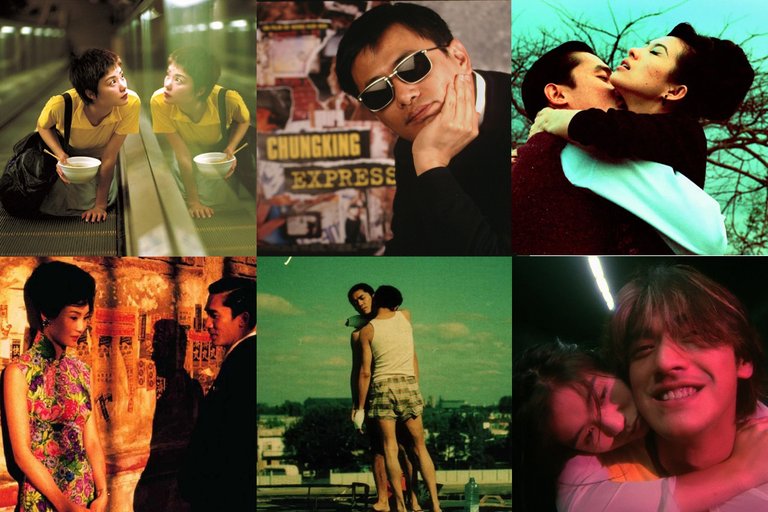
When talking about a very visual cinema in the previous paragraph I couldn't help but think of the Hong Kong native Wong Kar Wai. If you have been following my reviews for some time, you will know that I greatly admire the work of this master of contained love and complex human relationships. Mixing exquisite photography with beautiful color palettes (sometimes cool greens, sometimes warm reds), soundtracks with Spanish songs, and memorable characters, Wong Kar Wai has built a filmography that sets him apart from the rest. It is difficult to recommend any movie to get to know him because I have loved everything I have seen of his; However, I think my options would be Chungking Express, a gem from the nineties and one of my favorites from the director and the legendary In the Mood For Love, second part of Wong Kar Wai's love trilogy, listed by the BBC as one of the best films of the 21st century (it appears in second place on the list).
Al hablar de un cine muy visual en el párrafo anterior no pude evitar pensar el el hongkonés Wong Kar Wai. Si siguen mis reseñas desde hace algún tiempo sabrán que admiro mucho la obra de este maestro del amor contenido y de las complejas relaciones humanas. Mezclando fotografías exquisitas con paletas de colores hermosas (a veces verdes fríos, a veces rojos cálidos), bandas sonoras con canciones en español y personajes memorables, Wong Kar Wai ha construido una filmografía que lo diferencia del resto. Es difícil recomendar alguna película para conocerlo porque todo lo que he visto suyo lo he amado; sin embargo creo que mis opciones serían Chungking Express, una joya de los años noventa y una de mis favoritas del director y la mítica In the Mood For Love, segunda parte de la trilogía del amor de Wong Kar Wai, catalogada por la BBC como una de las mejores películas del siglo XXI (aparece en el segundo lugar de la lista).
Since we have been through Japan, South Korea and Hong Kong, this post would not be a complete recommendation if it ignored the largest country on the continent: China. And that's where director Zhang Yimou comes from. His style of cinema is characterized by several aspects. First, a careful and studied photography, different from that of Kim Ki-duk or Wong Kar Wai, but equally powerful; a central female figure who normally has a lot of strength and decision-making power despite adverse circumstances; and the reflection of the socio-cultural changes in China during the 20th century; All of this leads to forming a kind of everyday epic (it also has several epic battle stories) that feels very close. One of his first hits was Red Sorghum, based on the novel by Nobel Prize winner Mo Yan, and names like Not One Less, The Road Home and Raise the Red Lantern are mandatory stops in his filmography. Now, if you have never seen anything by Zhang Yimou I would recommend The Flowers of War, a story of prostitutes and schoolgirls in the middle of the Second World War starring Christian Bale and Zhang Xinyi, or if you want something more Asian the song to life which was his 1994 film, one of my favorites, To Live.
Ya que hemos pasado por Japón, Corea del Sur y Hong Kong, este post no sería una recomendación completa si ignorase el país más grande del continente: China. Y de allí procede el director Zhang Yimou. Su estilo de cine se caracteriza por varios aspectos. Primero una cuidada y estudiada fotografía, direfente a la de Kim Ki-duk o a la de Wong Kar Wai, pero igual de poderosa; una figura femenina central que normalmente tiene mucha fuerza y poder de decisión a pesar de las circunstancias adversa; y el reflejo de los cambios socio culturales de China durante el siglo XX; todo ello conlleva a formar una especie de épica cotidiana (también tiene varias historias épicas de batallas) que se siente muy cercana. Uno de sus primero éxitos fue Sorgo Rojo, basada en la novela del Premio Nobel de Literatura Mo Yan y nombres como Not One Less, The Road Home y Raise the Red Lantern son paradas obligatorias en su filmografía. Ahora bien, si nunca han visto algo de Zhang Yimou les recomendaría The Flowers of War, una historia de prostitutas y colegialas en medio de la segunda guerra mundial protagonizada por Christian Bale y Zhang Xinyi, o si quieren algo más asiático el canto a la vida que fue su película de 1994, una de mis favoritas, To Live.
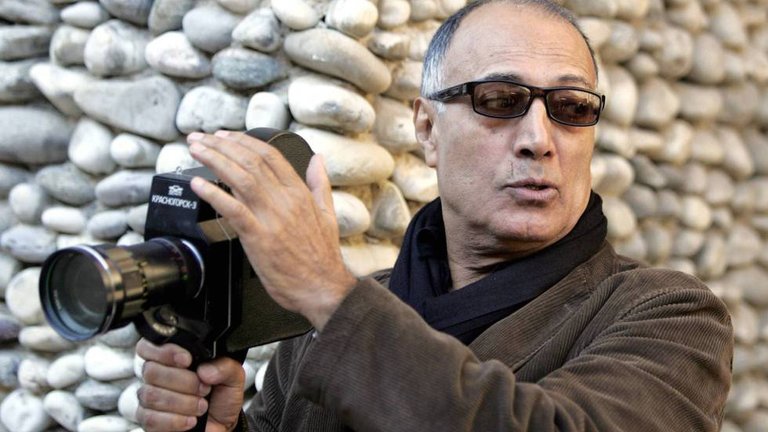
And to finish I will tell you a couple of names from a country that may surprise you: Iran. Because yes, although on this side of the world we relate Iran to the Arab countries, in geographical terms it is located in Asia, so technically Iranian cinema is Asian cinema. And the first name that appears in this matter is Abbas Kiarostami, considered the filmmaker of the nineties. Kiarostami's cinema, mainly set in his native country, is a mix of fiction and documentary that through simple characters, beautiful photography and a solid script shows the ambiguity and complexity of the human soul. Furthermore, Kiarostami's cinema is a lesson in the optimization of economic resources because he spends little money on making great films and to prove it I recommend starting with The Taste of Cherry, Close-Up and Ten. But if Kiarostami seems a little old-fashioned to you (although good cinema like works of art never goes out of fashion) I recommend Asghar Farhadi, also from Iran, but with a filmography from this century. Like his compatriot Kiarostami and many other geniuses of world cinema, Farhadi's strength lies in his scripts. There are no special effects or epic battle scenes, just deeply human stories told with a genius that borders on perfection. They could begin to get to know his cinema through a film he made in Spain called Everybody Knows (a luxury leading trio: Penélope Cruz, Javier Bardem and Ricardo Darín) or one he made in France called The Past (with Bérénice Bejo), but Ideally, it would be to start with movies filmed in his country like The Salesman or my two favorites: A Separation and About Elly
Y para terminar les diré un par de nombres procedentes de un país que les puede sorprender: Irán. Porque sí, aunque de este lado del mundo relacionamos a Irán con los países árabes, en términos geográficos se encuentra en Asia, así que técnicamente el cine iraní es cine asiático. Y el primer nombre que aparece en esta materia es el de Abbas Kiarostami, considerado el cineasta de los años noventa. El cine de Kiarostami, principalmente ambientado en su país natal, es una mezcla de ficción y documental que a través de personajes sencillos, una fotografía hermosa y un guión sólido muestra la ambigüedad y complejidad del alma humana. Además, el cine de Kiarostami es una cátedra de optimización de recursos económicos porque gasta poco dinero en hacer grandes películas y para comprobarlo les recomiendo iniciar con The Taste of Cherry, Close-Up y Ten. Pero si Kiarostami les parece algo anticuado (aunque el buen cine como las obras de arte no pasan de moda) les recomiendo a Asghar Farhadi, también de Irán, pero con una filmografía de este siglo. Al igual que su compratiota Kiarostami y muchos otros genios del cine mundial, la fuerza de Farhadi está en sus guiones. No hay efectos especiales ni escenas de batllas épicas, sólo historias profundamente humanas narradas con una genialidad que raya en la perfección. Podrían empezar a conocer su cine a través de una película que hizo en España llamada Everybody Knows (trío protagonista de lujo: Penélope Cruz, Javier Bardem y Ricardo Darín) o una que hizo en Francia llamada The Past (con Bérénice Bejo), pero lo ideal sería iniciar con películas filmadas en su país como The Salesman o mis dos favoritas: A Separation y About Elly.
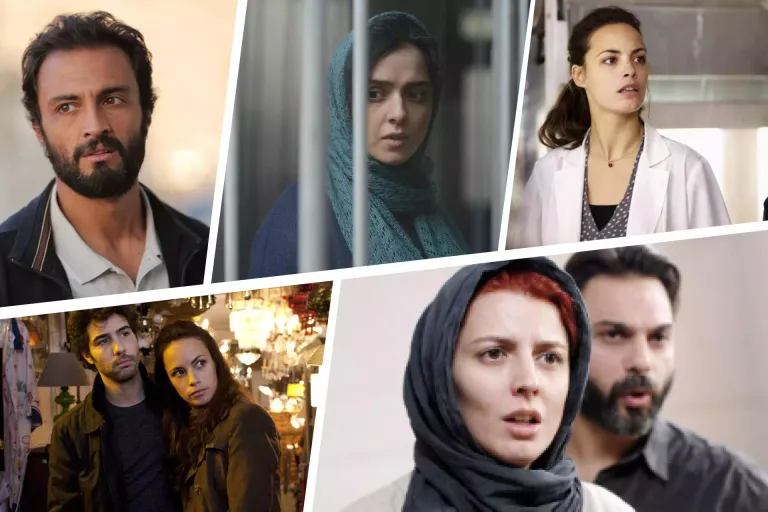
So there we have the seven names and their countries of origin: from Japan Miyao Miyazaki and Hirokazu Koreeda; from South Korea, Kim Ki-duk; Wong Kar Wai from Hong Kong; Zhang Yimou from China; and two Iranian geniuses, Abbas Kiarostami and Asghar Farhadi. Seven Asian directors who are great artists and who made and continue to make different films, alien to Hollywood remakes and empty Netflix productions, which makes me remember a phrase from the speech Bong Joon-ho gave when he won one of his Oscars : "once you overcome the one-inch-tall barrier of subtitles, you will be introduced to so many more amazing films". He said it in front of a Hollywood, English-speaking audience, and in that same sense I invite you to overcome the barrier of commonplaces and dare to see films from other latitudes because you may be missing out on your next favorite film and many cinematographic gems. In addition to the directors mentioned in this post, which others would you recommend? Who are your favorite Asian directors? I read you in the comments.
Entonces allí tenemos los siete nombres y sus países de procedencia: de Japón Miyao Miyazaki e Hirokazu Koreeda; de Corea del Sur, Kim Ki-duk; Wong Kar Wai de Hong Kong; Zhang Yimou de China; y dos genios iraníes, Abbas Kiarostami y Asghar Farhadi. Siete directores asiáticos que son grandes artistas y que hicieron y siguen haciendo cine diferente, ajenos a los remakes de Hollywood y a las producciones vacías de Netflix, lo que me hace recordar una frase del dicurso que dio Bong Joon-ho cuando ganó uno de sus Oscars: "Una vez que superes la barrera de los subtítulos de una pulgada de alto, conocerás muchas más películas increíbles". Lo dijo en frente de una audiencia hollywoodense, alglosajona, y en ese mismo sentido les invito a que superen la barrera de los lugares comunes y se atrevan a ver cine de otras latitudes porque se pueden estar perdiendo su próxima película favorita y muchas joyas cinematográficas. Además de los directores mencionados en este post, ¿cuáles otros recomendarían ustedes? ¿cuáles son sus directores asiáticos favoritos? Los leo en los comentarios.
Reviewed by | Reseñado por @cristiancaicedo
Other posts that may interest you | Otros posts que pueden interesarte:
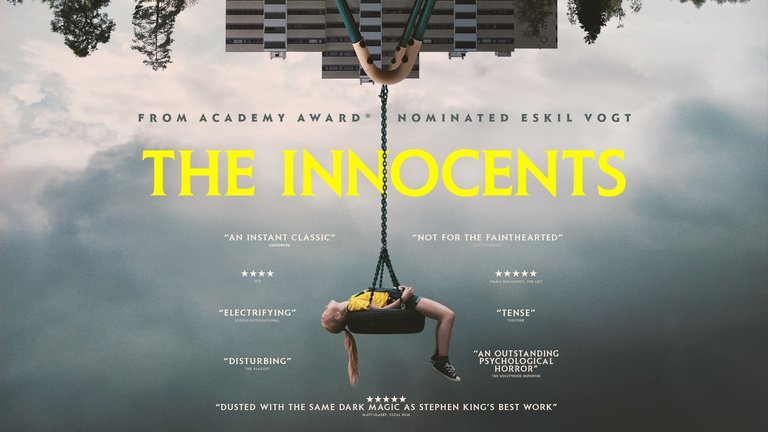 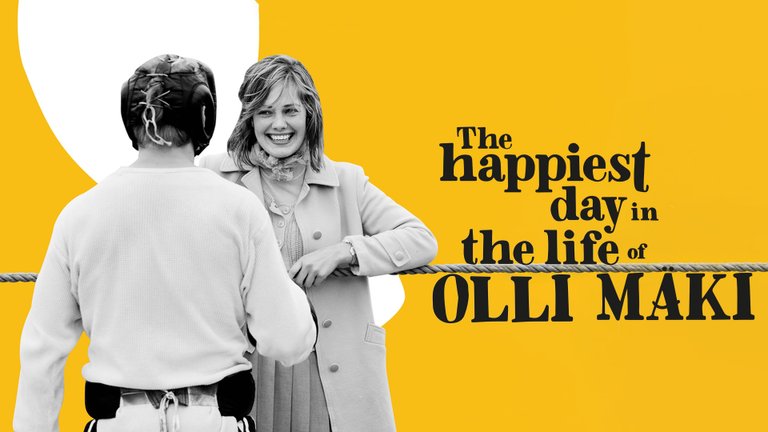 |
|---|
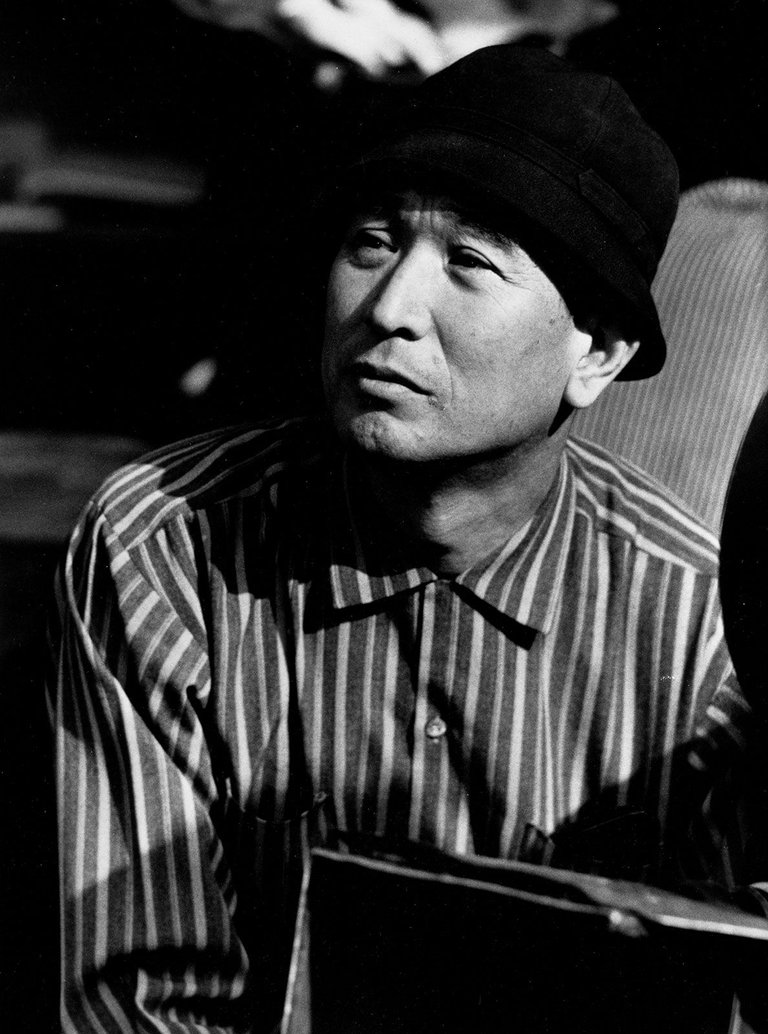
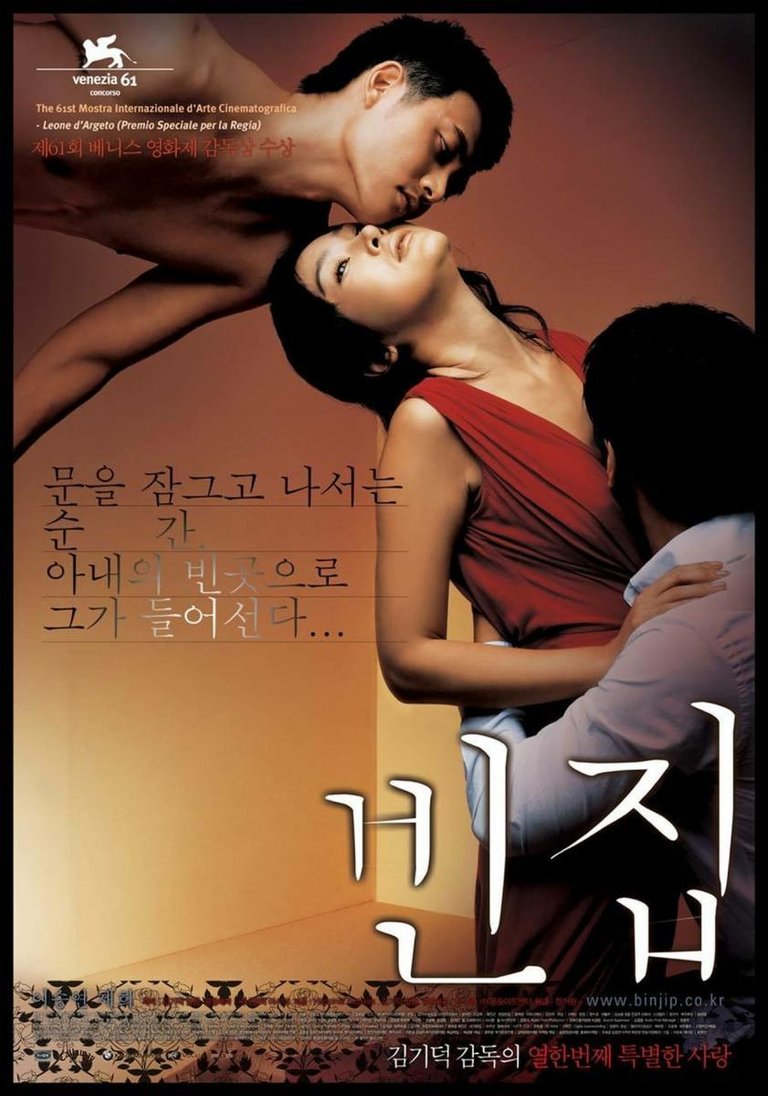
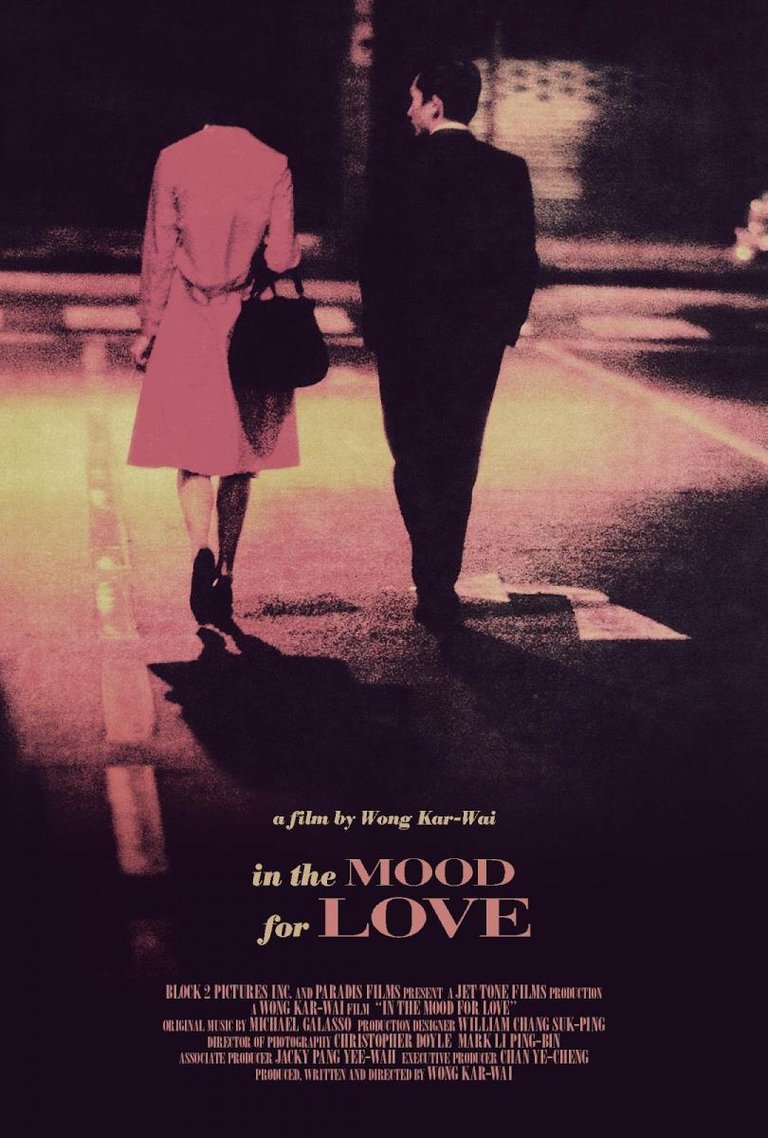
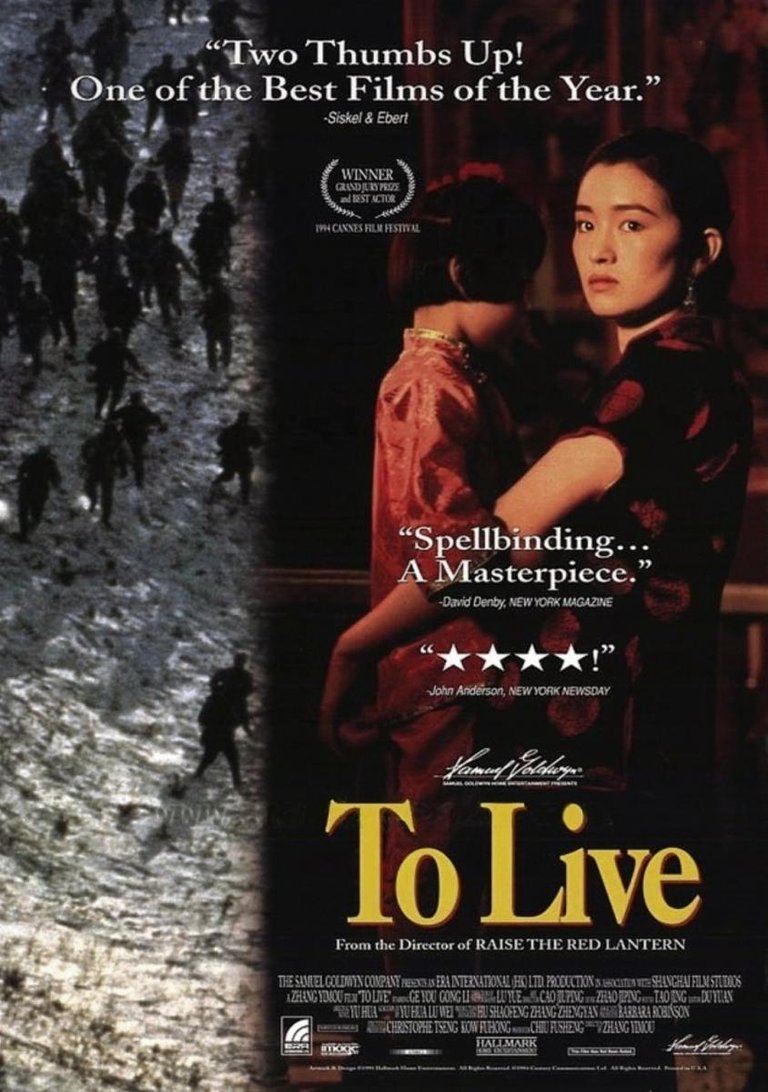
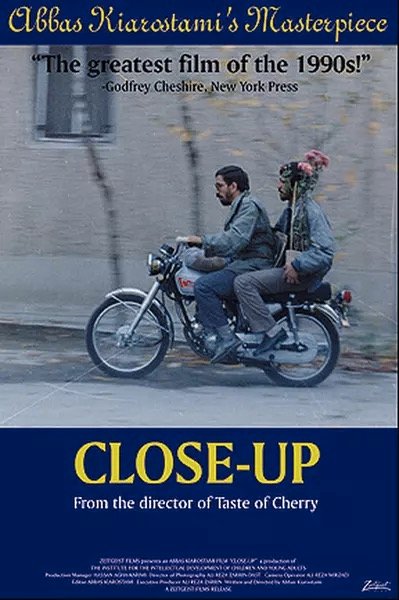

I just watched a Studio Ghibli anime about last month. I think it is time to check more Ghibli movies.
I hope you can do it soon and try some other names on the post. Thank you for reading.
welcome 😊
Congratulations @cristiancaicedo! You have completed the following achievement on the Hive blockchain And have been rewarded with New badge(s)
Your next target is to reach 4500 replies.
You can view your badges on your board and compare yourself to others in the Ranking
If you no longer want to receive notifications, reply to this comment with the word
STOPTomaré nota de estas indicaciones.